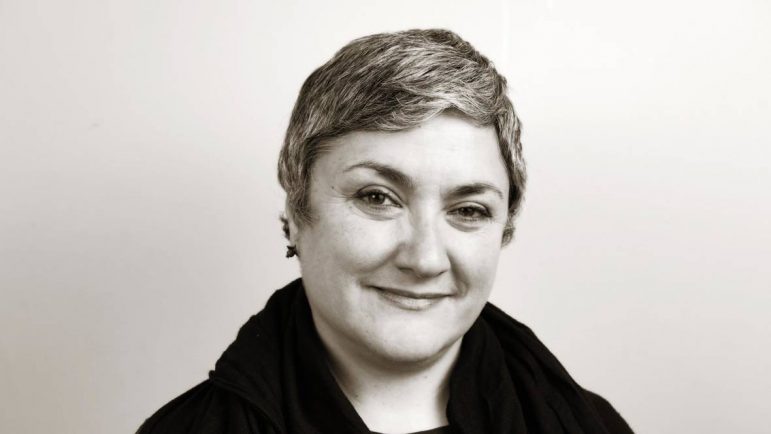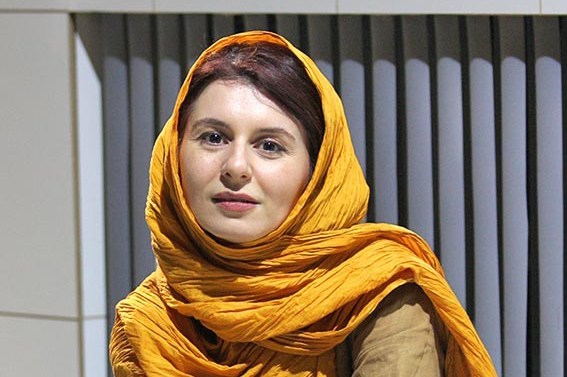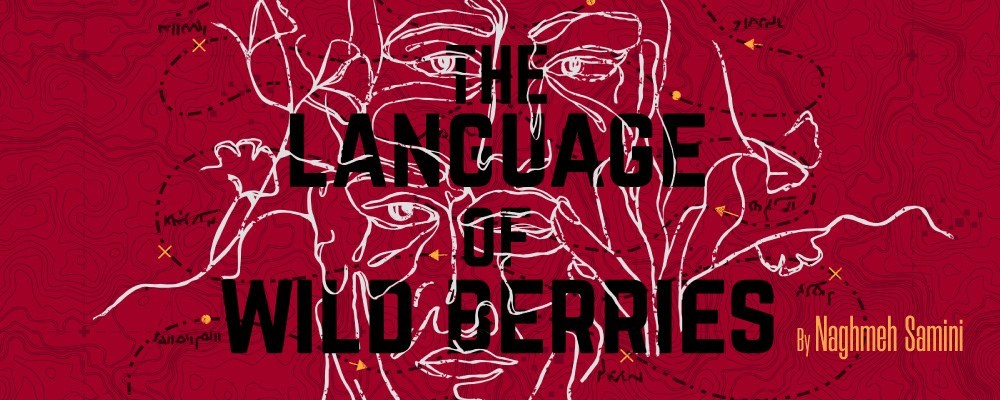“I wish I could pull out the depths of my anxiety and restlessness … from the bowels of my nonexistent existence, and put it right in front of you.”
The opening of Golden Thread Productions’ “The Language of Wild Berries” can be a bit jarring. There is no theaterhaus venue; there is nowhere to sit and look at “the stage” in order to experience the play, the first English-language adaptation in the United States of a work by acclaimed Iranian scholar and playwright Naghmeh Samini.
Rather, the stage can be anywhere: a bathtub, a long commute, a walk around the neighborhood. Instead of reserving tickets for a matinee or night show, the audience need only follow the link on Golden Thread’s website, and the entire work is free to stream on Spotify. Founder and executive creative director Torange Yeghiazarian, who translated and directed the production, calls it a radio play, the company’s first.
“After the initial shock, denial and anger [of the pandemic], we sat down with resident artists to discuss options,” she says of salvaging their 2020 season when San Francisco went into lockdown. “Performances on Zoom didn’t appeal to me, and I remember listening to radio plays as a child.”

A live rendition of “The Language of Wild Berries” was slated for the fall 2020 season, in anticipation of the company’s 25th anniversary this year. The play, as described on the website, offers a “glimpse into the lives of contemporary Iranians” tackling relationship themes like fidelity, the erosion of communication, outside pressures of the state and destiny.
The play is largely set on a road, in a car, following married couple Donya (Denmo Ibrahim) and Davood (Abraham Makany) as they take the “final” annual pilgrimage to Iran’s Caspian Sea, a ritual that started with their honeymoon and will supposedly end with this “reverse honeymoon” as they begin their divorce proceedings, though that’s not immediately obvious.
But before we meet Davood and Donya, there is a voice, a character yet unnamed whose criminal declaration hangs over the rest of the play.
“I have to commit murder, or something like murder.”
After the anxious murderer declares his intentions, the play opens with a scene between the couple steeped in the rosy optimism of newlyweds, an abstract conversation about vows, sharing a toothbrush, bias for their spouse’s cooking, the inevitability of how they met. Without being able to see the two of them, and with scant details of their physicality, it can be hard to follow where they are or how the setting impacts them so deeply.
To show transition, sound designer James Ard frames scenes and transitions within the sounds of turn signals, engine mumbling, the car radio and rain. Original music by Mohammad Talani supplements the tension that is hard to conjure without looking at a face.
As Donya and Davood approach their destination — Donya’s mother’s house who has the documents they need to begin proceedings — they are repeatedly confronted with their past, and the meddling of the unnamed narrator who will not reveal if he is human or celestial.
Yeghiazarian, who is Persian, founded San Francisco’s Golden Thread Productions in 1996 initially as a place to showcase her own work in a theater world that did not represent her and fellow West Asian performers. The company was the first of its kind in the United States and has worked for decades to provide a space for artists of the Middle Eastern diaspora to tell their own stories and be seen; Yeghiazarian recalls their 2001 opening night coincided with the first U.S. bombings of Afghanistan.
“People have a lot of assumptions about Middle Eastern people,” she says, like the xenophobic and stereotypical narratives of “victims or terrorists. How are we addressing that in our writing and holding people accountable for their misconceptions?”

In adapting “The Language of Wild Berries,” Yeghiazarian says that she didn’t want anyone reading stage directions, though the unnamed narrator, eventually named Danial (Sal Mattos), offers omnipotent insights throughout: the color of Donya’s hair, Davood’s inner monologue and the couple’s unmet needs.
There are brief mentions of Iran’s institutions, addressing the precariousness of higher education and political corruption in the country, but the play could, especially with the eyes closed, be about any couple anywhere coping with the breakdown of their relationship and the oppressive silence that prevents them from working out what’s wrong. Maybe they aren’t meant to.
“I don’t like the word destiny,” Donya says, shortly before the car seems, in the soundscape editing, to swerve off the side of the road.
But as Davood notes, after a painful exchange, “The ritual must be fulfilled.”
To the audience, the listener, both parties are guilty of something, but nobody knows of what. The Tower of Babel comes up again and again in their spats, as Danial tells the audience the two do not communicate on levels deeper than “a fingertip.” Every time the two manage to break through to each other through their journey, they end up stopping or veering from their path: Multitasking is impossible.
“Memory has slowed them down; nostalgia has paralyzed them,” Danial laments.
In their bouts of nostalgia, they emerge from the liminal space of the car, to confront, repeatedly, their present and how it’s changed, like stopping to eat lunch or staring down a gorge. In these moments their conversations have the most clarity, before their increasingly intangible journey presses on. There’s a little twist at the end that’s neither expected nor mind-blowing, but it falls right in line with what Davood and Donya have been resisting.
“Why should I be, and become?” Danial cries. “I lost to fate.”
* Listen to “The Language of Wild Berries,” available through March 21, and stay tuned for future radio play productions here: https://anchor.fm/golden-thread/episodes/The-Language-of-Wild-Berries-ekkl12https://embed.bloom.li/article/map?zoom=close&post_key=r24gKtc7laMjcjAJ178G#amp=1TAGGED:Golden Thread Productions, James Ard, Mohammad Talani, Naghmeh Samini, radio play, Theater, Torange Yeghiazarian
